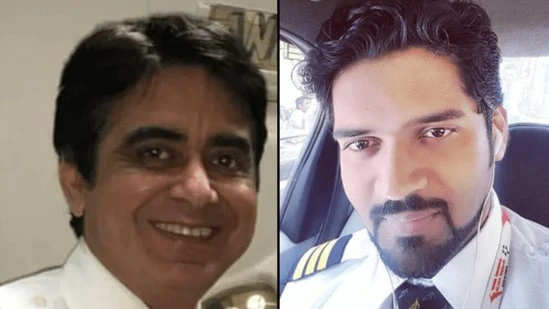The Federation of Indian Pilots (FIP) has condemned the Wall Street Journal’s fresh article on the Air India flight crash, alleging the report tried to point out the “pilot’s mistake” over the movement of fuel control switches on the plane.
CS Randhawa, the FIP chief, slammed the report, pointing out that the preliminary probe report by the Aircraft Accident Investigation Bureau’s (AAIB), released last week, did not place blame on any pilot.
“…Nowhere in the (probe) report has it been mentioned that the fuel control switch was turned off due to the pilot’s mistake. I condemn the article. They said it was the pilot’s mistake. They have not read the report properly, and we will take action against them through FIP,” Randhawa was quoted as saying by news agency ANI.
The AI171 Boeing 787 Dreamliner that crashed in Ahmedabad shortly after take-off was flown by two pilots — Captain Sumeet Sabharwal and First Officer Clive Kunder.
The initial probe report released last week had revealed a cockpit conversation between the two pilots after it stated that both fuel control switches on the ill-fated plane were moved to the ‘cut off’ position from the ‘run’ position after it took off.
“Why did you cut off fuel?” one pilot said, to which the other replied, “I did not do so”, the AAIB report stated. However, neither did the report identify which pilot said what, nor did it imply that the fuel cut-off to the engines was deliberate or accidental.
However, a WSJ report with details in the Air India plane crash published on Wednesday read, “A black-box recording of dialogue between the flight’s two pilots indicates it was the captain who turned off switches that controlled fuel flowing to the plane’s two engines, according to people familiar with U.S. officials’ early assessment of evidence uncovered in the crash investigation.”
HT.com couldn’t independently verify the WSJ report.
Objecting to what the media report claimed, FIP president Randhawa urged people not to comment on the report and wait for a detailed investigation into the crash before drawing conclusions.
He also drew parallels with the investigation of a January 2019 air accident and suggested a thorough probe into the TCMA (Throttle Control Malfunction Accommodation).
“Neither the report nor the Civil Aviation Minister has said that it was pilot error…You must relate this to the incident of ANA NH985, which occurred on January 17, 2019. At the time of landing, when the pilot selected thrust reversers, both engines shut down without the pilot moving the fuel control switch. I am quite clear that this is a repetition of the TCMA malfunction, and this needs a thorough investigation of the TCMA. Boeing has not taken any action yet and has not even tried to issue a directive that all these aircraft should be checked for TCMA functions,” Randhawa said.
He also raised objection to not a single pilot being part of the investigation committee probing the Air India plane crash.
“Indian pilots are among the best in the world. I did not give my opinion to the Wall Street Journal, which had approached me as well, because I am against this American media. They are deliberately giving their own opinion, their own views from this report, while there is nothing like this in the report. So I very strongly condemn this report of the Wall Street Journal and we will take action on it,” he added.
He has urged the Civil Aviation ministry for the investigation panel to be reconstituted, taking pilots, engineers and air safety experts on board.
According to Reuters, Sumeet Sabharwal, 56, had total flying experience of 15,638 hours, of which 8,596 hours were on a Boeing 787, and Clive Kunder, 32, had a flying experience of 3,403 hours, of which he spent 1,128 hours being a co-pilot on 787 Boeing jets.
